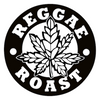Riddim Breakdown: Stalag
A truly unique aspect of Reggae music is the way in which instrumental tracks (or ‘riddims’) are reused, revisited and remixed to create different ‘versions’ of songs. It’s a testament to the innovative nature of Jamaican people.
Arguably one of the most recognisable and ubiquitous Reggae riddims of all time has to be Stalag 17 by Ansel Collins & Winston Riley, which has been used in some form or fashion for over 300 different Reggae songs and sampled hundreds more by artists in other genres.

Named after the famous 1953 war film and originally released in 1973 on the prolific Techniques label, “Stalag” carries a heavyweight legacy in the genre. It was born in an era when Jamaican music was going through a significant transformation, blending Roots Reggae with emerging Dub mixing techniques pioneered by the likes of King Tubby and Lee Scratch Perry.
The infectious bassline rumbles beneath crisp, swaggering drums and syncopated guitar rhythm, punctuated by triumphant horns and warm, soothing organs. Throughout the 70s it was popularised by vocalists creating their own versions of the rhythm, but it wasn’t until a decade later that the most notable versions of the song were recorded. To the casual listener, Sister Nancy’s ‘Bam Bam’ is by far the most recognisable of these.

Riley revisited Stalag for a recording session in 1982 with 20-year-old Ophlin Russel (aka Sister Nancy) who had been working with Yellowman at the time. In an interview with Vibe Magazine in 2017, Sister Nancy shared that she had been working on her album ‘One, Two’ and just needed one extra song. Yellowman had recently recorded his song “Bam Bam” which used the chorus from Toots and The Mayals 1966 hit of the same name, so she suggested to Riley that she do her own version. Riley pulled up the Stalag Riddim and Sister Nancy essentially freestyled the lyrics. She recalls that for days after the session she couldn’t remember the lyrics she’s used and so had to listen back repeatedly and write them down before memorising them.
According to Sister Nancy, ‘Bam Bam’ had a lukewarm reception in Jamaica but its real success came from overseas. However it wasn’t until she emigrated to the US in 1996 that she realised just how successful her song had been. Then, two years later in 1998 she was watching a movie called ‘Belly’ when she heard her song come on the soundtrack. This came as a complete surprise to her as nobody had asked her permission to use the song. It was at this point she decided to investigate what had happened to her rights.
She discovered that she had unwittingly signed over all her rights to the song to Riley in the original recording session and as a result hadn’t received a penny of the royalties the song had earned over the previous two decades. Unfortunately this is a common story in Jamaican music as many songwriters were paid session fees of a few dollars to record a song but were rarely attributed the rights to the lyrics they wrote.
Sister Nancy’s case was eventually settled out of court and she received 50% of the royalties the song earned for the preceding decade which allowed her to quit her job as a bank clerk and revive her music career.

The other most well-known and loved version of Stalag has to be the late great Tenor Saw’s ‘Ring The Alarm’. This sound system staple’s storied origin is reflected in the lyrics. In a rare interview in 1985, the year of the song’s original release, a 19 year old Tenor Saw described how he originally came up with the lyrics at a sound clash between 4 different sound systems: Jammy’s, Arrows International, Black Scorpio and Youth Promotion, the latter of which Tenor Saw was representing.
At the clash, Saw came up with the lyrics “four big sound inna one big lawn, Promotion a play, di odda three keep calm… suh ring di alarm” and performed them, leading Youth Promotion to victory. The chorus was such a hit that he went home that very night and wrote the rest of the lyrics, soon heading to the studio to record the iconic track over Riley’s Stalag Riddim and the rest, as they say, is history.
Stalag 17 is more than just a song; it's a cornerstone of the reggae and dancehall genre. Check out the embedded playlist at the top of this article or hit the link below to hear some of our favourite versions of Stalag.
Reggae Roast Selects Our Favourite Stalag Versions (Spotify Playlist): https://open.spotify.com/playlist/0kzyV8PkSSndXBQsulb1EJ?si=2b34da725efc49f2
Complete list of versions: https://www.riddimguide.com/tunedb/riddim_Stalag/sortby_riddim/seq_asc/page_1/


